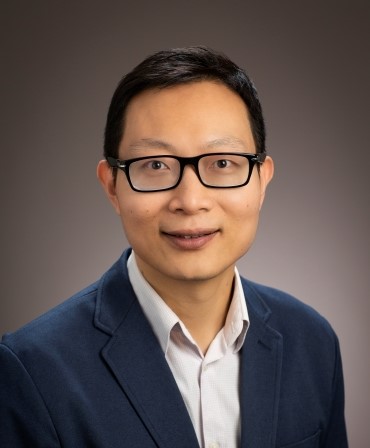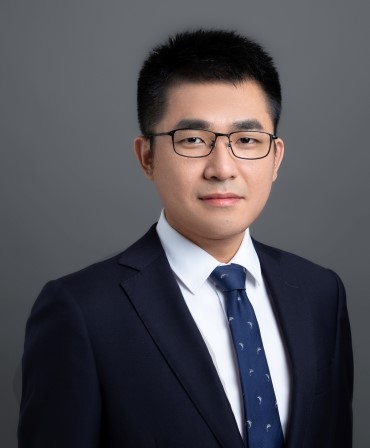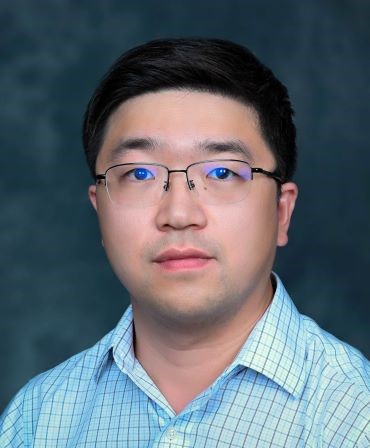We aim to promote research, education, and applications of distributed technologies for risk management.
Decentralized insurance is an all-encompassing term used to describe a wide range of business models that use some form of decentralization or disintermediation in their insurance processes. For example, DeFi insurance models often rely on communities of token holders to provide services in the insurance process. A token holder may participate in a voting process to approve or deny a claim in exchange for an allocation of premium as their reward. The consensus for claim validation achieved through the voting process offers an alternative to the centralized approach, which relies solely on the decisions of professional claim adjusters in the traditional insurance industry.


Today’s insurance businesses are based on centralized client-server models, where an insurer serves as a market intermediary to provide services to millions of policyholders. Each insurance policy is a bilateral contract between a policyholder and an insurer. The insurer acts as a central node, sells identical products to tens of thousands of policyholders, and pools the risks from all policies. As all risks are aggregated and kept with a single insurer, high-risk capital becomes necessary to absorb adverse economic scenarios.
While insurers enjoy the economy of scale with a large volume of insurance policies, the market is also highly centralized, with a small number of large insurers occupying the majority of the market share. As the insurance industry becomes centralized, regulators often impose strict regulations, increasing the cost of compliance and the entrance barrier for new insurers. The raised barrier leads to the further consolidation of insurers in the market and exacerbates the problem of market concentration.
Distributed risk sharing refers to a type of business model that distributes risks and rewards to a large network of risk takers. The allocation of risks enables investors of varying risk appetites or financial capacities to participate in a shared pool of risks and business opportunities. The controlled risk allocation for each risk taker requires less intensive capital and allows for higher return on dollar investment than traditional insurance capital management.
Data has been touted as the fuel of the 21st century. The exponential growth of data offers unprecedented opportunities for data mining, which can be crucial in improving organizational efficiency, developing industry-level standards and best practices, preventing fraud and scams, and driving innovations. However, the inaccessibility of data across the boundaries of insurance firms or even business divisions within a corporation makes it difficult to share data and uncover business insights that can only be learned from large volumes of data.
Federated learning describes a distributed machine learning framework enabling multi-party model construction without sharing data among collaborators. Federated learning offers a new tool to exchange model insights while preserving collaborators’ privacy and proprietary information.


Runhuan is a Fellow of the Society of Actuaries and a Charter Enterprise Risk Analyst. He is also the State Farm Companies Foundation Endowed Professor at the University of Illinois at Urbana-Champaign. As an applied scientist, Runhuan strongly believes that most interesting research problems are discovered in response to the changing needs of the industry and the society. Runhuan has worked as a consultant to many corporations and startups, and providing expert testimonies to law firms for public policy assessment and actuarial analysis. His research interests are on how distributed technologies can be best utilized to serve the public at large and to address global risks and challenges.

Linfeng is a visiting assistant professor of Actuarial Science at Drake University. He earned his Mathematics Ph.D. with a concentration in Actuarial Science from the University of Illinois at Urbana-Champaign in 2023. Prior to his doctoral study, Linfeng worked as a research assistant at the Critical Infrastructure Resilience Institute for three years and accumulated extensive research experience in cyber risk and insurance. He then broadened his research interests to the applications of classic and modern technologies to emerging risk management topics. Linfeng also stays close to the business world and has consulted for business analytics and insurtech startups.

Noah is a creative self-starter with a background in startup ventures. He brings valuable tech sales experience to the table and possesses skills in digital design and marketing. As an avid knowledge pursuer, Noah constantly seeks opportunities to expand his expertise. He has previous experience working with an auto insurance startup, demonstrating his familiarity with the industry. Noah’s qualifications also include holding a Master’s degree in Technology Management from the University of California, Santa Barbara.

Zhiyu (Frank) Quan is an Assistant Professor at the Department of Mathematics of the University of Illinois at Urbana-Champaign. He holds a Ph.D. in Actuarial Science from the University of Connecticut. Before joining Illinois, he worked in a cutting-edge Insurtech company as a R & D data scientist developing data-driven solutions for major insurance companies. He has a broad spectrum of research interests in data science applications in insurance such as tree-based models, natural language processing, deep learning, and applies his actuarial expertise to build predictive models for claim research, rate making, etc. His research projects are driven by real-life data and are inspired from collaborations with Insurtech and insurance companies. Besides, he is a faculty advisor of the Illinois Risk Lab, which facilitates research activities that integrate academic training with practical problem-solving in real business settings. He has received the Arnold O. Beckman Research Award and has been awarded by the Society of Actuaries Research Institute.

Jan Dhaene is a professor of actuarial science at KU Leuven's Faculty of Economics and Business. His current research interests include modeling dependencies in insurance portfolios, incorporating stochastic financial aspects in actuarial models, risk management for financial institutions, and integrating financial and actuarial models. Jan Dhaene has promoted or co-promoted research grants from various organizations, including the Fund for Scientific Research - Flanders, KU Leuven, the European Commission, the Actuarial Education and Research Fund, and the Bilateral Co-operation Program KU Leuven - Tsinghua University. Additionally, he has held positions such as co-chair of the Fortis Chair in Financial and Actuarial Risk Management (2006-2009) and chairholder of the AG Insurance Chair in Health Insurance (2010-2019).

Michel Denuit is a Professor of Probability, Statistics and Actuarial Mathematics at the UCLouvain in Belgium. He was a co-editor of the ASTIN Bulletin - The Journal of the International Actuarial Association and the founding editor of the Belgian Actuarial Bulletin, which is now included in the European Actuarial Journal. Well-known in the research community, he has a wide range of research expertise in actuarial science, applied probability, statistics, mathematical economics, and operations research. His recent work on peer-to-peer insurance and recent book series on machine learning and predictive analytics generated great interests among young scholars and practitioners. He has been recognized with numerous prizes and honors, including ARIA's Brockett-Shapiro Actuarial Journal Award 2019 and Harris Schlesinger Prize for Research Excellence 2019. He is a co-founder of Detralytics, a Belgium consulting firm.